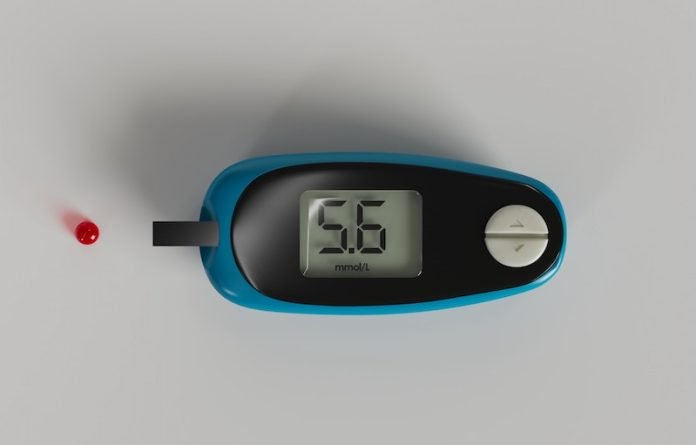
In a recent study, a group of scientists from Western Sydney University examined how to improve the care of people with complex type 2 diabetes.
They found that a short 15-20 minute discussion between a local endocrinologist (a doctor who specializes in diabetes) and a general practitioner (GP) can make a big difference.
In this study, the researchers used a model called “patient-free” diabetes case conferencing.
This means that with the patient’s consent, an endocrinologist visited a GP practice, along with a practice nurse or diabetes educator, to work together on developing a joint management plan for the patient.
The team tested this model on more than 600 patients with type 2 diabetes from 40 general practices across southwestern Sydney.
They found that blood glucose, blood pressure, weight, and other heart risk factors all improved following the three-year trial.
Blood glucose levels strongly improved, with more than a third of patients within the target range compared with just one in five before the program.
In addition, more than three-quarters of patients recorded systolic blood pressure within the target range on follow-up, compared with less than half of patients in 2017.
The findings suggest that this model can make a significant contribution to diabetes management in primary care settings. It can help close gaps in service provision, improve the patient experience, and reduce duplication of care.
This model is a win-win-win for patients, GPs, and the health system. Patients get specialist input into their care without any extra time or cost, GPs can continue to manage their patients using their extra knowledge, and the health system has less demand on hospital clinics, potentially reducing and preventing hospitalizations in people with complex diabetes compared with usual care.
If you have type 2 diabetes, talk to your doctor about how to improve your care. By working together, you can develop a management plan that’s right for you and help improve your health.
How to manage type 2 diabetes
Managing type 2 diabetes involves a combination of lifestyle changes, medication, and regular monitoring. Here are some tips:
Eat a healthy diet: Eating a diet that’s low in sugar and refined carbohydrates and high in fiber, whole grains, fruits, and vegetables can help manage blood sugar levels.
Exercise regularly: Regular physical activity can help improve insulin sensitivity and lower blood sugar levels. Aim for at least 150 minutes of moderate-intensity aerobic exercise per week, as well as strength training exercises.
Monitor blood sugar levels: Regularly checking blood sugar levels can help you understand how food, exercise, and medication affect your levels. Work with your doctor to determine how often you should check your blood sugar levels.
Take medication as prescribed: Your doctor may prescribe medication to help manage your blood sugar levels. It’s important to take your medication as prescribed and to talk to your doctor about any side effects.
Maintain a healthy weight: Losing weight, if you’re overweight or obese, can help improve insulin sensitivity and lower blood sugar levels.
Manage stress: Stress can raise blood sugar levels, so finding healthy ways to manage stress, such as exercise, meditation, or deep breathing, can be helpful.
Stop smoking: Smoking can increase your risk of complications from type 2 diabetes, such as heart disease and stroke. Quitting smoking can improve your overall health.
By making these lifestyle changes and working with your doctor to develop a management plan, you can help manage your type 2 diabetes and reduce your risk of complications.
If you care about diabetes, please read studies that green tea could help reduce death risk in diabetes, and widely used diabetes drug metformin may reduce cognitive decline.
For more information about diabetes, please see recent studies that blueberries strongly benefit people with metabolic syndrome, and results showing common diabetes drugs that can spike heart attack risk.
The study was conducted by Professor David Simmons et al and published in the International Journal of Integrated Care.
Copyright © 2023 Knowridge Science Report. All rights reserved.



